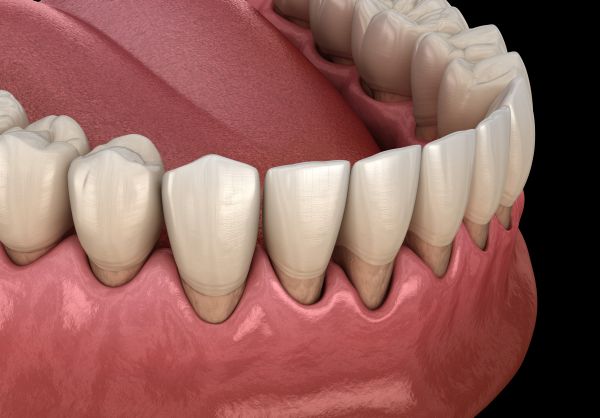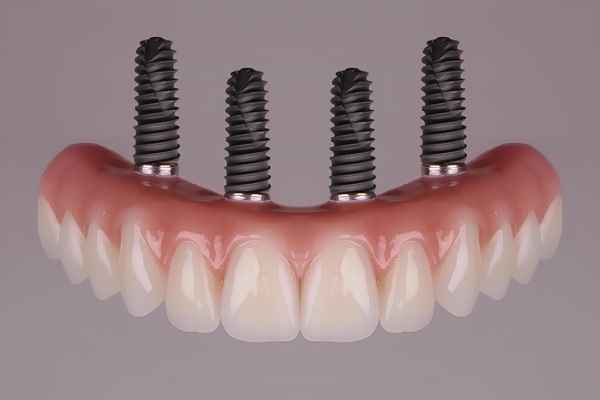What Is a Receding Gum Lift?

A receding gum lift is sometimes called gum contouring surgery or gum reshaping. This procedure is used to restore a person’s gumline to normal coverage of the tooth for both medical and cosmetic reasons.
Who would need a receding gum lift?
Anyone who has lost normal, proper gumline coverage of one or several teeth should consult with a dental professional about a receding gum lift. Receding gums can expose the root of a tooth, leading to damage and even possible loss. Receding gums are also commonly a symptom of periodontal disease and should be examined by a qualified dental health care provider to rule out other oral health concerns.
Though the primary reason for getting a gum lift procedure is to protect and maintain the proper function of the teeth, a gum lift also provides cosmetic benefits. Receding gums can give a person a prematurely aged or older appearance.
When is receding gum lift surgery necessary?
A gum lift procedure is needed if a patient has experienced significant gum recession from one or more teeth. This is to protect the health and proper function of the tooth and guard against further gum recession. Sometimes, gum grafts are necessary to restore the proper coverage of the teeth by the gumline.
What should someone expect from a receding gum lift?
This procedure would be performed in the fully-equipped office of a dentist or oral surgeon. Local anesthetic would be applied to numb the area to be treated. A variety of tools might be used depending on the technique involved in the gum lift surgery, and sometimes a small section of the tooth root must be ground down for the restored gumline to be able to adhere to it adequately.
Recovering from receding gum lift surgery
After a gum lift procedure, the patient should rest as much as possible and limit their activities. A patient’s mouth will be healing for weeks after surgery, and any activity that could adversely affect the lifted gum tissue or slow down the healing process should be avoided.
Pain or discomfort can be treated by over-the-counter NSAID analgesics like acetaminophen or ibuprofen. Aspirin should be avoided, as it thins the blood.
During the three to five days following surgery, patients should avoid foods high in acid content or heavily seasoned foods, as these could irritate and inflame the healing gumline and slow the healing process.
Patients should also follow restricted diets during this period. Only soft foods that can easily be chewed and swallowed without placing pressure or strain on any treated teeth should be eaten until the gums have healed completely.
A receding gum lift protects your teeth and enhances your smile
Anyone who thinks they may have receding gum and wants to know more should speak with a qualified dental healthcare professional. They will be able to answer any questions about this procedure. To be put in touch with knowledgeable experts who can answer any questions you may have about receding gum lift surgery, simply click the link below!
Request an appointment here: https://www.ohiocosmeticdentists.com or call Ohio Cosmetic Dentists at (614) 503-5240 for an appointment in our Columbus office.
Check out what others are saying about our services on Yelp: Read our Yelp reviews.
Recent Posts
Professional teeth cleaning is an important aspect of routine dental care. In addition to practicing thorough oral hygiene habits that include regular brushing and flossing of the teeth, patients should always maintain biannual dental exams to ensure excellent oral health.The following are a few of the numerous benefits that regular teeth cleanings offer when included…
Full mouth dental implants are an option that many patients choose when they need to replace their missing teeth. Our smile is the first impression we have when meeting a new person. We all want that impression to be warm and welcoming. When our smile is somewhat imperfect, we tend to lack confidence and feel…
Many people may believe that they do not have time for routine dental care, which consists of daily brushing and flossing as well as periodic cleaning by a dentist. Admittedly, these tasks do take some time but should be a priority even in a busy schedule. People who do not take time for brushing, flossing,…
Dental veneers are versatile restorations. Your dentist can improve the health and appearance of your teeth by applying these custom-fit shells. Talking to your dentist about the procedure can motivate you to set your treatment schedule. Here are the pros and cons of getting your dental veneers.Dental veneers can be a good choice for dental…


